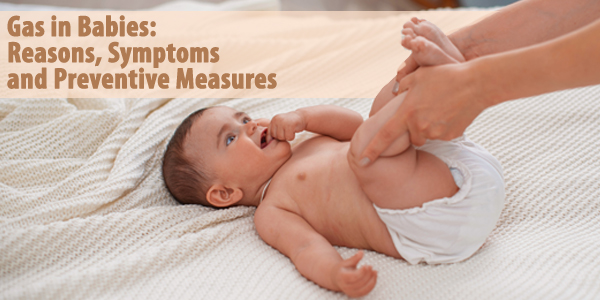
Nothing warms a parent’s heart more than seeing their baby happy and gurgling. However, sometimes their little one tends to squirm, cry and display other symptoms of being uncomfortable. While there are many reasons for this discomfort in babies, the most common cause is the presence of gas in their stomach. Here we will look at the reasons for this while also looking at the symptoms and the appropriate remedial measures.
Reasons
The digestive system of babies is immature and so more susceptible to becoming gassy due to numerous reasons like:
- Inadvertently swallowing too much air during bottle feeds.
- Gulping in more air when they cry
- Reaction to something in the mother’s diet (if nursing)
- Reaction to new foods being introduced into the baby’s diet
Symptoms
The presence of excessive gas tends to make babies very uncomfortable and they squirm and cry till the gas is relieved from their system. A few of the other symptoms are:
- Trouble eating and sleeping
- Excessive burping or belching
- Excessive flatulence
- Pulling their legs up to their chest
- Swelling of the abdomen area
Preventive Measures
There are numerous ways to ensure gas does not accumulate in babies, like:
- Ensuring the baby’s head is held up at a higher level than their stomach when bottle-feeding
- Tilting the bottle at an angle while feeding to avoid the intake of air
- Patting the baby gently on the back while keeping them upright in order to get them to burp out the gas (at regular intervals during the feeding process and also once completed)
- Cutting down on gassy food intake by nursing mothers
- Gently massaging the baby’s stomach and also moving their hands and feet (in a circular motion).
These measures will greatly help in reducing the gas build up in babies, ensuring they are free of discomfort and therefore much more happy and playful.